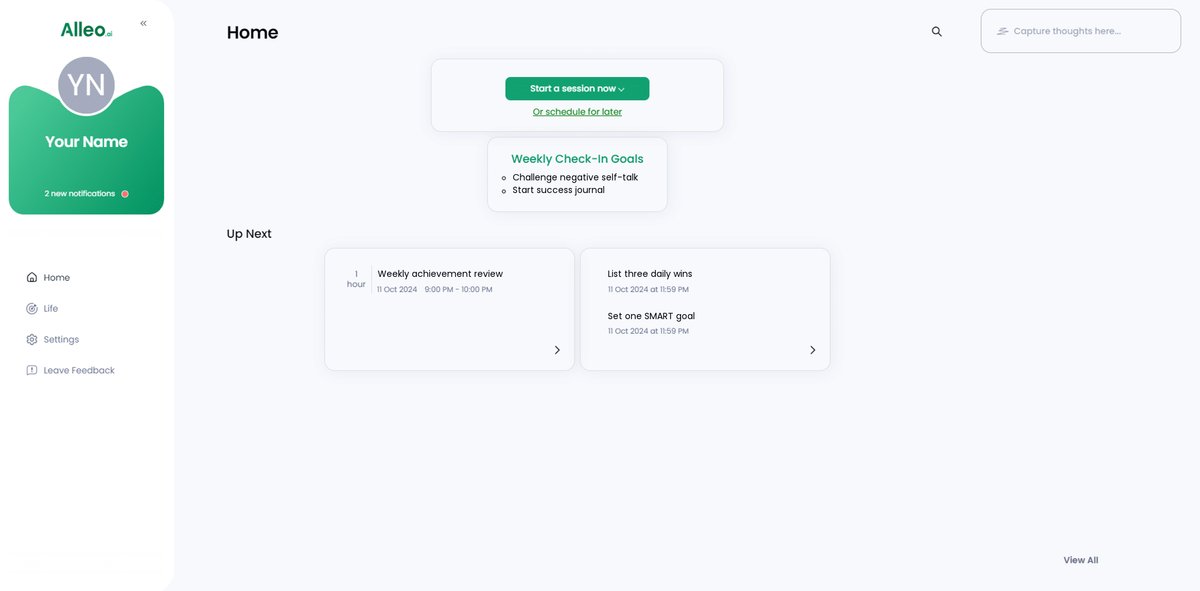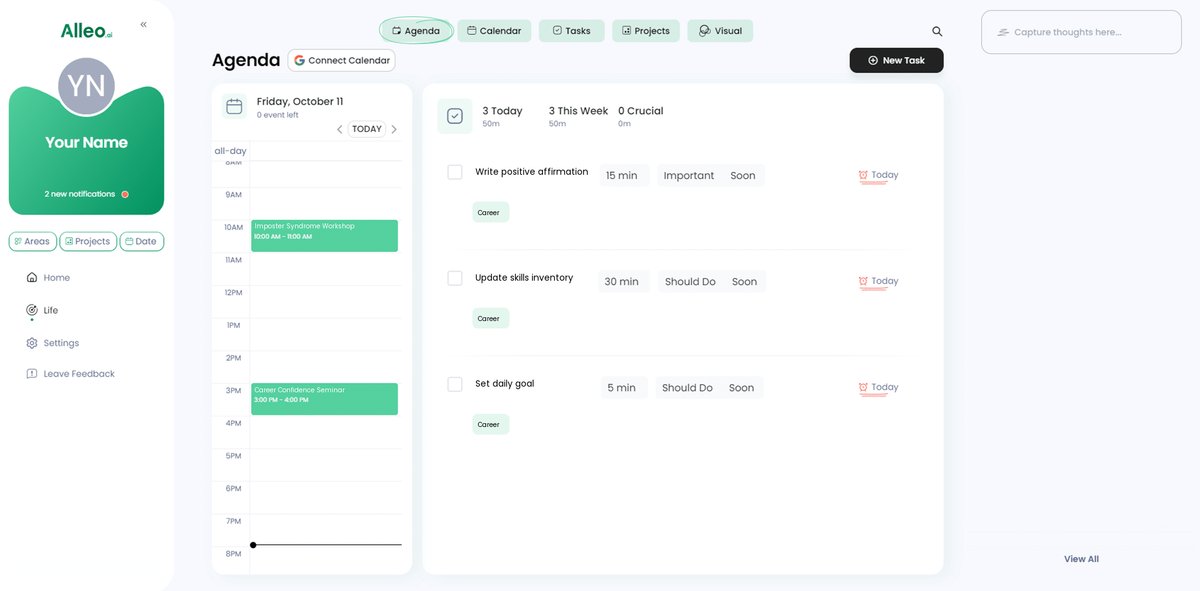7 Essential Strategies to Conquer Imposter Syndrome in Your New Job Role
Starting a new job can be both exciting and daunting. You might feel a mix of anticipation and uncertainty, wondering if you’re truly qualified for the role. This is a common experience when overcoming new job imposter syndrome.
As a life coach, I’ve helped many professionals navigate these challenges. In my experience, imposter syndrome at work often creeps in during these career transition challenges. Dealing with workplace anxiety is a natural part of proving yourself in a new position.
In this post, you’ll learn practical strategies to overcome self-doubt and thrive in your new job. We’ll explore coping strategies for new employees and ways to build confidence in your new career.
Let’s dive in and discover how to boost your self-efficacy in job performance while managing professional self-doubt.

Understanding the Impact of Imposter Syndrome in New Roles
Starting a new job often triggers feelings of self-doubt and inadequacy. Imposter syndrome at work is a common issue that can significantly impact job performance and professional self-doubt.
Many clients I’ve worked with initially struggle with feeling like they don’t belong when overcoming new job imposter syndrome.
These feelings can be triggered by the pressure to prove yourself in a new position. It can lead to anxiety, stress, and even burnout, affecting workplace mental health.
In my experience, people often find it challenging to recognize their achievements and skills when dealing with workplace anxiety. They focus on their perceived flaws instead, hindering self-efficacy in job performance.
Overcoming new job imposter syndrome and building confidence in a new career is crucial for thriving in any new role and addressing career transition challenges.

Overcoming new job imposter syndrome requires a few key steps. Here are the main areas to focus on to make progress in dealing with workplace anxiety and professional self-doubt.
- Recognize and challenge negative self-talk: Identify and reframe negative thoughts to build confidence in your new career.
- Document your achievements and skills: Keep a success journal and review it regularly to boost self-efficacy in job performance.
- Seek feedback from colleagues and superiors: Schedule feedback sessions and implement suggestions to prove yourself in a new position.
- Set realistic goals and celebrate small wins: Break tasks into manageable goals and celebrate each win to overcome imposter syndrome at work.
- Embrace continuous learning and skill-building: Enroll in courses and join professional groups to address career transition challenges.
- Practice self-compassion and positive affirmations: Start your day with positive affirmations and self-kindness to support workplace mental health.
- Build a support network within the organization: Connect with mentors and peers for support in overcoming new job imposter syndrome.
Let’s dive in!
1: Recognize and challenge negative self-talk
Recognizing and challenging negative self-talk is crucial for overcoming imposter syndrome in a new job role, especially when dealing with workplace anxiety and professional self-doubt.
Actionable Steps:
- Identify negative thoughts: As soon as you notice a negative thought related to your career transition challenges, write it down immediately.
- Reframe negative thoughts: Transform each negative thought into a positive affirmation to shift your mindset and build confidence in your new career.
- Practice mindfulness: Engage in mindfulness exercises daily to stay present, reduce anxiety, and improve your self-efficacy in job performance.
Explanation:
These steps help you become aware of and counteract the negative self-talk that fuels imposter syndrome at work.
By documenting and reframing your thoughts, you can build a more positive self-image and overcome new job imposter syndrome.
Practicing mindfulness keeps you grounded and less anxious, which helps in maintaining focus and performance while proving yourself in a new position.
Taking these actions will support you in feeling more confident and capable in your new role, addressing career growth and self-esteem concerns.

2: Document your achievements and skills
To combat imposter syndrome at work and overcome new job imposter syndrome, it’s essential to keep track of your accomplishments and abilities.
Actionable Steps:
- Create a success journal: Record your daily achievements and milestones to visualize your progress and build confidence in your new career.
- Update a skills list regularly: Keep an ongoing list of your skills and competencies, adding new ones as you develop them, helping to reduce professional self-doubt.
- Review your list weekly: Spend time each week reflecting on your recorded achievements and skills to boost your self-efficacy in job performance.
Explanation:
These steps help you recognize your true capabilities and achievements, counteracting the negative thoughts that fuel imposter syndrome and workplace anxiety.
Regularly reviewing your success journal and skills list reinforces a positive self-image and growth mindset, essential for overcoming new job imposter syndrome.
This practice aligns with industry trends emphasizing continuous self-improvement and addressing career transition challenges. For more insights on dealing with workplace anxiety, check out this Forbes article on overcoming imposter syndrome.
Taking these actions will help you build confidence and feel more secure in your new role, improving workplace mental health and aiding in proving yourself in a new position.

3: Seek feedback from colleagues and superiors
Seeking feedback from colleagues and superiors is essential for overcoming imposter syndrome in a new job role, especially when dealing with workplace anxiety and professional self-doubt.
Actionable Steps:
- Schedule regular one-on-one meetings: Set up bi-weekly or monthly meetings with your manager to receive constructive feedback and build confidence in your new career.
- Ask for feedback on specific projects: Reach out to colleagues to get their insights on your work, focusing on areas for improvement and enhancing self-efficacy in job performance.
- Use feedback to make improvements: Act on the feedback you receive to show growth and enhance your performance, proving yourself in a new position.
Key benefits of seeking feedback include:
- Gaining objective insights into your performance
- Identifying areas for improvement and growth
- Building stronger relationships with colleagues
Explanation:
These steps help you gain clarity on your strengths and areas for development, supporting your professional growth and addressing career transition challenges.
Regular feedback sessions encourage continuous improvement and foster a supportive work environment, contributing to workplace mental health.
For more on the benefits of feedback, check out this Forbes article on the importance of feedback.
Building a habit of seeking and implementing feedback can significantly boost your confidence in your new role and help in overcoming new job imposter syndrome.

4: Set realistic goals and celebrate small wins
Setting realistic goals and celebrating small wins is crucial for building confidence and momentum in your new job role, especially when overcoming new job imposter syndrome.
Actionable Steps:
- Break down large tasks: Divide big projects into smaller, manageable goals to make them less overwhelming and more achievable, helping to reduce professional self-doubt.
- Set SMART goals: Use Specific, Measurable, Achievable, Relevant, and Time-bound criteria to define clear and attainable objectives, aiding in building confidence in your new career.
- Celebrate each small win: Acknowledge and reward yourself for each milestone achieved, no matter how small, to maintain motivation and combat workplace anxiety.
Explanation:
These steps help you stay focused, organized, and motivated, making progress more tangible and less daunting when dealing with imposter syndrome at work.
Celebrating small wins fosters a positive mindset and reinforces a sense of accomplishment, crucial for overcoming new job imposter syndrome.
According to a Forbes article, recognizing achievements is key to maintaining motivation and performance.
Implementing these practices will help you feel more confident and capable in your new role, improving self-efficacy in job performance.
Taking these actions will support your ongoing success and satisfaction in your new position, helping you overcome career transition challenges.

5: Embrace continuous learning and skill-building
Continuously learning and building new skills is vital for overcoming imposter syndrome in a new job role and addressing professional self-doubt.
Actionable Steps:
- Enroll in relevant online courses: Find and register for courses that enhance your current job skills and knowledge, helping you overcome new job imposter syndrome.
- Participate in professional development programs: Take advantage of training and workshops offered by your company to stay updated with industry trends and boost your self-efficacy in job performance.
- Join industry-related groups or forums: Engage with professional groups to network and learn from others in your field, aiding in building confidence in your new career.
Explanation:
These steps help you stay competitive and confident in your abilities, reducing feelings of imposter syndrome at work. Embracing continuous learning aligns with current career development trends and ensures you are always growing, which is crucial for dealing with workplace anxiety.
For instance, joining professional groups can provide valuable insights and networking opportunities, helping you cope with career transition challenges. Implementing these practices will support your ongoing success and confidence in your new role, assisting in proving yourself in a new position.
Continuously learning and building skills keeps you ahead in your career and strengthens your self-assurance, contributing to workplace mental health and overall career growth and self-esteem.
6: Practice self-compassion and positive affirmations
Practicing self-compassion and positive affirmations is key to overcoming imposter syndrome in a new job role, especially when dealing with workplace anxiety and professional self-doubt.
Actionable Steps:
- Start each day with a positive affirmation: Begin your morning by repeating an empowering statement about your abilities to boost self-efficacy in job performance.
- Treat yourself with kindness during setbacks: When facing career transition challenges, remind yourself that mistakes are learning opportunities, not failures.
- Keep a gratitude journal: Write down three things you are grateful for each day to focus on the positive aspects of your work and life, helping to build confidence in your new career.
Explanation:
These steps help build a positive mindset and counteract self-doubt, essential for overcoming new job imposter syndrome. By starting your day with affirmations, you set a confident tone for proving yourself in a new position.
Treating yourself kindly during setbacks encourages resilience when facing career growth and self-esteem challenges. Keeping a gratitude journal shifts your focus to positivity, enhancing overall well-being and workplace mental health.
For more strategies, see this Psychology Today article on the science of self-affirmation.
Incorporating these practices will support your confidence and growth in your new role, helping you overcome imposter syndrome at work and navigate coping strategies for new employees.

7: Build a support network within the organization
Building a support network within the organization is essential for overcoming new job imposter syndrome and feeling more confident in your new role. This step is crucial in dealing with workplace anxiety and professional self-doubt.
Actionable Steps:
- Connect with a mentor or coach: Identify and reach out to a mentor within your company who can offer guidance and support in building confidence in your new career.
- Join an employee resource group: Participate in groups focused on professional development to connect with colleagues who share similar goals and can help with coping strategies for new employees.
- Foster relationships through team activities: Engage in team-building activities or informal gatherings to build stronger relationships with your peers, which can aid in overcoming imposter syndrome at work.
The benefits of a strong support network include:
- Access to valuable advice and insights for career transition challenges
- Emotional support during challenging times, enhancing workplace mental health
- Opportunities for collaboration and growth, boosting self-efficacy in job performance
Explanation:
These steps help you create a reliable support system, which can provide encouragement and advice as you navigate your new role and work on proving yourself in a new position. Having a mentor offers personalized guidance, while resource groups and team activities foster a sense of belonging and community, essential for overcoming new job imposter syndrome.
Implementing these strategies can significantly enhance your confidence and professional growth. For more insights, check out this Forbes article on the importance of networking and mentorship.
Building a strong support network will help you feel more secure and supported in your new position, contributing to your career growth and self-esteem.

Partner with Alleo to Overcome Imposter Syndrome
We’ve explored the challenges of overcoming new job imposter syndrome and how solving them can benefit your career. But did you know you can work directly with Alleo to make this journey easier and faster?
Alleo offers tailored coaching support specifically for managing imposter syndrome at work. Setting up an account is simple. Just sign up for a free 14-day trial—no credit card required.
Once you’re in, create a personalized plan with Alleo’s AI coach to address professional self-doubt. The coach will guide you through each step, from setting goals to tracking progress in building confidence in your new career.
You’ll receive regular follow-ups via text and push notifications to keep you on track with overcoming new job imposter syndrome.
Alleo will also help you adjust your plan as needed, ensuring you stay focused and motivated while dealing with workplace anxiety. It’s like having a human coach to support your self-efficacy in job performance, but more affordable and accessible.
Ready to get started for free? Let me show you how!
Visit Alleo and begin your journey to confidence today, addressing career transition challenges and improving your workplace mental health.
Step 1: Log In or Create Your Account
To begin overcoming imposter syndrome with our AI coach, log in to your existing account or create a new one in just a few clicks.

Step 2: Choose Your Focus Area
Select “Setting and achieving personal or professional goals” to tackle imposter syndrome head-on by defining clear objectives that align with your new role, helping you build confidence and track your progress as you overcome self-doubt.

Step 3: Select “Career” as Your Focus Area
Choose “Career” as your focus area in the Alleo app to directly address imposter syndrome and build confidence in your new job role, aligning perfectly with the strategies discussed in the article.

Step 4: Starting a coaching session
Begin your journey with an initial intake session, where you’ll discuss your imposter syndrome challenges and work with the AI coach to create a personalized plan for building confidence in your new role.

Step 5: Viewing and managing goals after the session
After your coaching session, check the app’s home page to review and manage the goals you discussed, helping you stay on track with overcoming imposter syndrome and building confidence in your new role.

Step 6: Adding events to your calendar or app
Use Alleo’s calendar and task features to schedule and track your progress in overcoming imposter syndrome, such as setting reminders for daily affirmations or blocking time for skill-building activities.

Wrapping Up: Your Journey to Confidence Begins Now
Transitioning to a new job can be overwhelming, but you’re not alone. Imposter syndrome at work affects many professionals, leading to professional self-doubt and workplace anxiety.
Remember, recognizing and challenging negative self-talk is your first step in overcoming new job imposter syndrome. Documenting your achievements and seeking feedback builds confidence in your new career.
Set realistic goals and celebrate your progress. Embrace continuous learning and practice self-efficacy in job performance.
Most importantly, build a support network within your organization to help with career transition challenges. These coping strategies for new employees will help you thrive in your new role.
Don’t let imposter syndrome hold you back from career growth and self-esteem. Take the first step towards proving yourself in a new position today.
Try Alleo for personalized support on this journey to overcome new job imposter syndrome. Your confidence awaits.